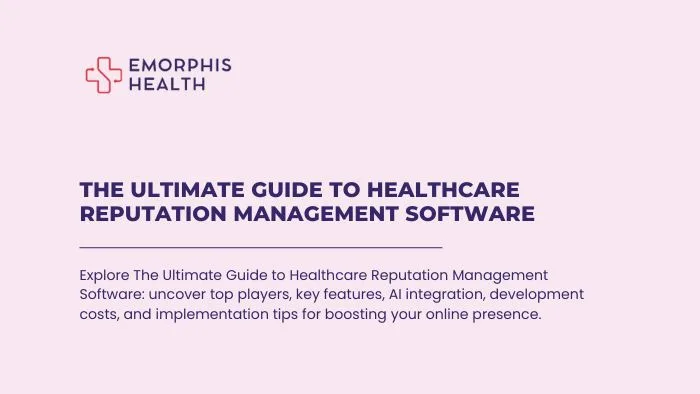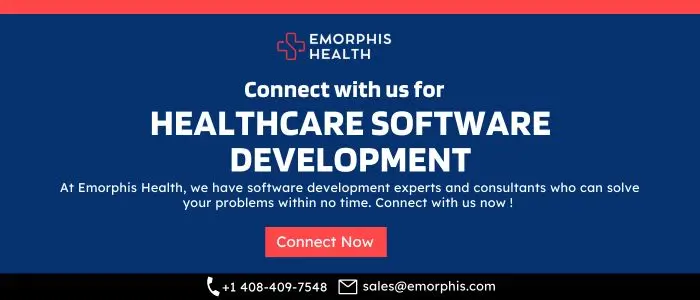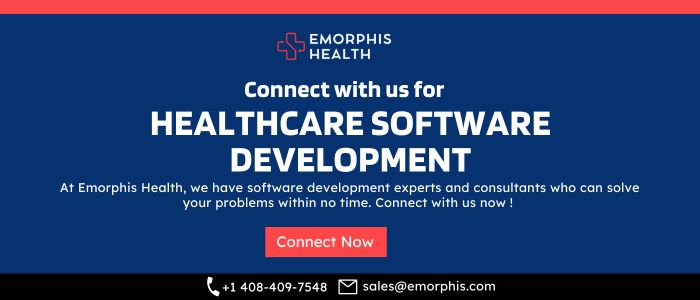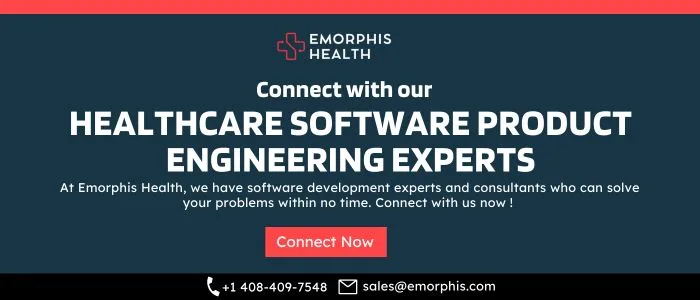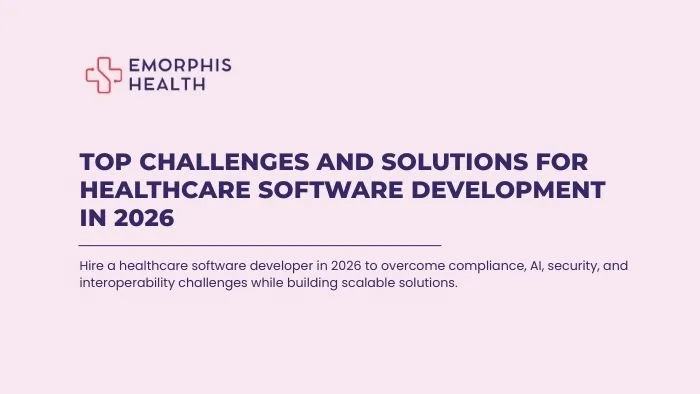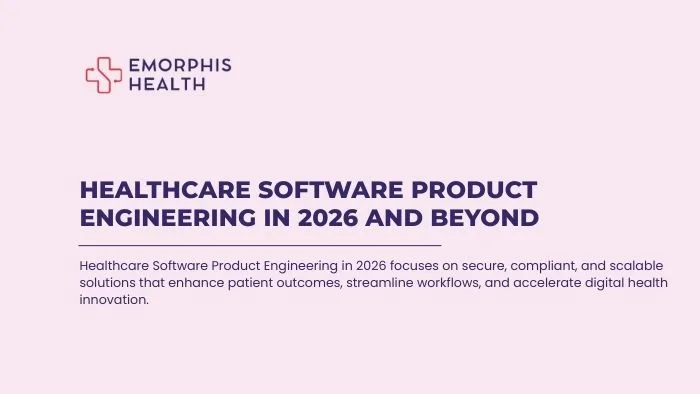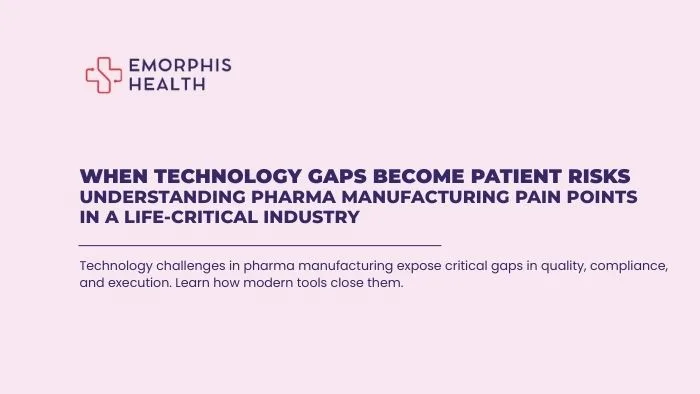In the digital era, managing a healthcare provider’s reputation online has become a crucial task. With patient reviews and social media comments significantly impacting a healthcare provider’s image, healthcare reputation management software has emerged as an essential tool. This ultimate guide will explore the ins and outs of healthcare reputation management software, its importance, key features, cost considerations, and implementation strategies.
Understanding Healthcare Reputation Management Software
See Contents
- 1 Understanding Healthcare Reputation Management Software
- 2 Major Players in Healthcare Reputation Management Software
- 3 Why is Reputation Management Crucial in Healthcare?
- 4 Key Features of Healthcare Reputation Management Software
- 5 Technology Stack in Healthcare Reputation Management Software Development
- 6 How Can AI Integration Transform Healthcare Reputation Management Software?
- 7 Cost of Development for Healthcare Reputation Management Software
- 8 Choosing the Right Healthcare Reputation Management Software
- 9 Implementing Healthcare Reputation Management Software
- 10 Conclusion
Healthcare reputation management software is designed to help healthcare providers monitor, manage, and enhance their online presence. In fact, this software allows providers to track patient reviews, manage feedback, and improve their overall image. Moreover, it plays a pivotal role in ensuring that healthcare organizations maintain a positive reputation in a competitive market.
Furthermore, the impact of healthcare reputation management software extends beyond simply managing reviews. It offers comprehensive tools to analyze sentiment, engage with patients, and refine online strategies, thereby safeguarding the provider’s credibility and fostering patient trust.
Major Players in Healthcare Reputation Management Software
Several prominent companies lead the field of healthcare reputation management and online reputation management software. Reputation dot com is a notable player, offering comprehensive solutions for monitoring and enhancing a healthcare provider’s online presence with features like review management, social media monitoring, and advanced analytics. BirdEye is another key provider, known for its robust platform that integrates review generation, response management, and AI-driven analytics to help healthcare organizations improve service quality and manage patient perceptions effectively. Podium offers a suite of tools designed to streamline patient communication and gather feedback, while Yext provides a platform for managing online listings and reviews across multiple sites. Zocdoc focuses on improving patient acquisition through its reputation management features, and PatientPop delivers solutions that enhance online visibility and patient engagement. Healthgrades and CareDash are also significant players, specializing in review management and patient feedback to help healthcare providers maintain a positive reputation.
Why is Reputation Management Crucial in Healthcare?
Managing a healthcare provider’s reputation is not just about maintaining a good image; it directly influences patient trust and satisfaction. In fact, a positive online reputation can lead to increased patient engagement, higher appointment rates, and overall better patient outcomes. Moreover, in a sector where trust and care are paramount, a well-managed reputation can differentiate a provider from competitors.
Also, negative reviews or poor online visibility can deter potential patients and damage the provider’s credibility. Hence, healthcare online reputation management software becomes indispensable in navigating these challenges and ensuring a favorable public perception.
Key Features of Healthcare Reputation Management Software
To maximize the benefits of healthcare reputation management software, it is important to understand its core features:
-
Review Monitoring and Management
Effective healthcare reputation management software offers robust review monitoring capabilities. In fact, it aggregates reviews from multiple platforms like Google, Yelp, and Healthgrades into a single dashboard. Moreover, this centralized approach simplifies the process of tracking and managing feedback across various sites.

-
Response Templates and Automation
Responding to patient reviews can be time-consuming, but online reputation management software often includes response templates and automation features. Furthermore, these tools ensure that responses are timely and consistent, enhancing the efficiency of reputation management efforts.
-
Sentiment Analysis
Sentiment analysis tools are integral to healthcare reputation management software. In fact, they evaluate the tone and sentiment of patient reviews, providing insights into public perception. Moreover, this feature helps identify recurring issues or areas for improvement, which can be crucial for enhancing patient care and service quality.
-
Social Media Monitoring
Social media has become a significant platform for patient feedback and discussion. Also, reputation management software includes social media monitoring tools to track mentions and conversations about the provider. Furthermore, this allows healthcare providers to engage with patients directly and address any concerns raised on social platforms.
-
Analytics and Reporting
Detailed reports and analytics are essential for making informed decisions. In fact, reputation management software provides comprehensive reports on review trends, sentiment scores, and overall online reputation. Moreover, these insights are invaluable for strategic planning and continuous improvement.
Technology Stack in Healthcare Reputation Management Software Development
When developing healthcare online reputation management software, selecting the right technology stack is crucial for ensuring functionality, security, and scalability. The technology stack encompasses various technologies, tools, and frameworks that work together to build and maintain the software. Below is an overview of the key components typically included in the technology stack for healthcare reputation management software:
Front-End Technologies
| Technology | Description |
| HTML/CSS/JavaScript | HTML and CSS form the foundational structure and style of the user interface. JavaScript adds interactivity. |
| React.js | A popular library for building user interfaces with components and state management. |
| Angular | A robust framework for building single-page applications, emphasizing modularity and performance. |
| Vue.js | A progressive framework is known for its ease of integration and flexibility. |
Back-End Technologies
| Technology | Description |
| Python | Known for its simplicity and a wide range of libraries, such as Django or Flask, for rapid development. |
| Java | Offers scalability and performance, with frameworks like Spring Boot for building robust applications. |
| Node.js | A JavaScript runtime built on Chrome’s V8 engine, ideal for developing scalable network applications using frameworks like Express.js. |
Database Technologies
| Technology | Description |
| PostgreSQL | An open-source relational database known for its robustness and support for complex queries. |
| MySQL | A widely used relational database, reliable and efficient for handling large volumes of data. |
| MongoDB | A document-oriented NoSQL database offering flexibility and scalability for handling unstructured data. |
| Cassandra | A distributed NoSQL database designed for high availability and handling large amounts of data across many servers. |
Cloud Services
| Technology | Description |
| Amazon Web Services (AWS) | Provides a broad set of cloud services, including compute power, storage, and databases, essential for scalable application deployment. |
| Microsoft Azure | Offers a range of cloud services and tools, including data management and analytics capabilities. |
| Google Cloud Platform (GCP) | Provides infrastructure, machine learning, and data analytics services to support scalable and secure application development. |
Security and Compliance
| Technology | Description |
| SSL/TLS Encryption | Ensures secure data transmission between the client and server. |
| HIPAA Compliance Tools | Tools and practices to ensure adherence to Health Insurance Portability and Accountability Act regulations. |
| Role-Based Access Control (RBAC) | Manages user access levels and permissions to protect sensitive data and functionality. |
In fact, choosing the right technology stack not only supports the core functionality of healthcare reputation management software but also ensures that it remains secure, scalable, and efficient. Moreover, the technology stack impacts the software’s performance and user experience, making it essential to select the best tools and frameworks for your specific needs.
Furthermore, integrating these technologies seamlessly and maintaining them effectively is key to delivering a robust solution that meets the evolving demands of healthcare reputation management.
How Can AI Integration Transform Healthcare Reputation Management Software?
AI integration can profoundly transform healthcare online reputation management software by enhancing its capabilities and efficiency. In fact, AI-powered sentiment analysis tools offer a more accurate understanding of patient feedback, detecting nuances in language and tone that traditional methods might miss. This allows for a deeper insight into patient sentiments and helps healthcare providers address recurring issues more effectively. Moreover, AI enables automated review management, categorizing feedback, and generating personalized responses, which streamlines communication and prioritizes critical issues.
Furthermore, AI-driven predictive analytics allow providers to anticipate future patient behavior and identify potential issues before they escalate. This proactive approach helps prevent negative reviews and enhances patient satisfaction. Advanced Natural Language Processing (NLP) capabilities also improve the interpretation of patient feedback, offering more accurate insights into concerns and preferences. In fact, these AI innovations collectively drive more targeted improvements in service delivery, leading to better patient engagement and a stronger online reputation.
Click to check details on AI software development services
Cost of Development for Healthcare Reputation Management Software
When considering healthcare reputation management software, understanding the cost of development is crucial. In fact, several factors affect the overall cost:
-
Factors Affecting Cost
- Complexity and Features: The more advanced the features, the higher the development cost. Moreover, custom solutions tailored to specific needs can be more expensive than off-the-shelf options.
- Customization Requirements: Customization to fit the unique needs of a healthcare provider adds to the cost. Furthermore, integrating the software with existing systems can influence the overall price.
- Development Team Expertise: The experience and expertise of the development team can impact costs. Also, highly specialized developers may charge more for their services.
-
Cost Breakdown
- Initial Development Costs: This includes the cost of designing, developing, and deploying the software. In fact, these costs can vary widely based on the software’s complexity and customization.
- Ongoing Maintenance and Support: Post-launch support and maintenance are essential for keeping the software up-to-date and functional. Moreover, ongoing costs should be factored into the overall budget.
-
Budgeting and Planning
- Furthermore, it is important to estimate costs accurately and allocate resources effectively. Proper budgeting ensures that the investment in reputation management software delivers the expected benefits without exceeding financial constraints.
Choosing the Right Healthcare Reputation Management Software
Selecting the right healthcare reputation management software involves several considerations:

-
Ease of Use
In fact, the software should be user-friendly and intuitive. Moreover, it should integrate seamlessly with existing systems to minimize disruptions. Also, a user-friendly interface enhances the overall efficiency of managing online reputation.
-
Customization and Scalability
Healthcare providers have unique needs, so it is crucial to choose software that can be customized accordingly. Furthermore, the software should be scalable to accommodate future growth and evolving requirements.
-
Customer Support
Reliable customer support is vital for addressing any issues or questions that arise. In fact, excellent support can make a significant difference in resolving challenges and maximizing the software’s effectiveness.
-
Compliance and Security
Given the sensitive nature of patient information, the software must comply with industry regulations and ensure robust data security. Moreover, strong security features are essential for protecting patient data and maintaining trust.
Click to check the details of Healthcare app development services.
Implementing Healthcare Reputation Management Software
Furthermore, implementing healthcare reputation management software involves several key steps:
-
Assessment and Planning
Evaluate current reputation management practices and identify areas for improvement. In fact, a thorough assessment helps in setting clear goals and expectations.
-
Selection and Customization
Choose the software that best meets your needs and customize it to fit your specific requirements. Moreover, customization ensures that the software aligns with your practice’s unique needs.
-
Training and Integration
Provide training for your team and integrate the software with your existing systems. Also, effective training ensures that your team can fully utilize the software’s features.
-
Monitoring and Evaluation
Continuously monitor the software’s performance and evaluate its impact on your online reputation. In fact, ongoing evaluation helps in identifying areas for further improvement and ensuring that the software delivers the desired results.
Conclusion
Healthcare reputation management software is a vital tool for maintaining a positive online presence and fostering patient trust. In fact, it provides essential features for monitoring, managing, and enhancing your reputation. Moreover, investing in the right software can set your practice apart from competitors and contribute to long-term success. By understanding and utilizing the capabilities of healthcare reputation management software, providers can effectively navigate the complex digital landscape and ensure a favorable image in the eyes of their patients.
Furthermore, effective implementation and continuous evaluation of the software are crucial for maximizing its benefits. So, take the time to explore your options, choose a solution that aligns with your goals, and invest in maintaining a strong, positive reputation. Your practice—and your patients—will undoubtedly reap the rewards.

